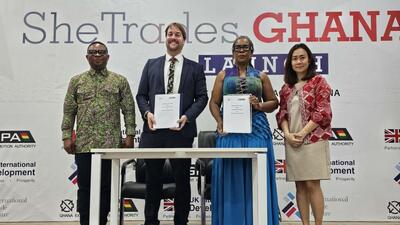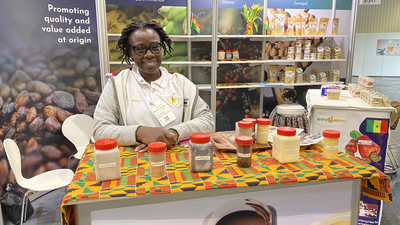
Identifying impediments that hinder Ghana’s efforts to boost trade
National survey-based report finds Ghana’s traders struggle with invisible hurdles
Around 50% of Ghanian exporters of goods and services face difficulties with non-tariff measures (NTMs) – which range from export inspection, customers clearance and visas to rules of origin and conformity assessment (performance, safety, efficiency) and irregular payments – according to a new ITC report: Ghana: Invisible barriers to trade – Business perspectives.
The report is based on a survey of 960 trading firms (of all sizes) across the country, conducted between October 2019 and June 2020. It identified trade hurdles through direct interactions with businesses – information that should help policymakers craft trade policies to boost Ghana’s trade and better integrate into global value chains.
These NTMs affect exporters of goods and services (47%) more than importers (33%), with impacts varying across sectors. In the information and communication technologies sector (ICT), the percent of companies facing obstacles was 52%, followed by manufacturing (48%), agriculture (43%), transport and logistics (41%), and tourism and travel (32%).
Both foreign and local regulations slow down trade. For goods exporters, partner (or destination) countries account for 69% of the hurdles, while Ghana accounts for 31%. The European Union (EU) holds the largest share of these NTMs at 34%, followed by ECOWAS at 27% and Asia at 11%.
But a higher NTM share does not coincide with a higher trade volume. While 40% of Ghana’s exports go to Asia, only 11% of companies face obstacles there. The opposite occurs in ECOWAS, with 12% of the export trade but 27% of the obstacles – an indication that it is relatively difficult to access. As for the EU, it accounts for 34% of Ghana’s export trade and 34% of the obstacles.
Too many regulations and procedures lead to delays, hindering business
Which regulations pose the most problems? For goods exporters, the biggest ones are technical measures (like wood fumigation), which account for 52%, followed by rules of origin (32%). For services exporters, however, tax measures top the list (31%) along with technical requirements (31%). For example, the paperless port system, which is mandatory, was introduced to reduce clearance time and human contacts; instead, completion time has risen from 2 to 5 days.
As for domestic procedures, the survey cites lengthy compliance procedures, high fees and charges, and informal payments. For example, many exporters say that obtaining a conformity assessment certificate means paying bribes at each level of the inspection process to speed it up.
Given that many of the difficult regulations and procedures are domestic – not just those of trade partners – there is a lot that Ghana can do to improve its business environment for trade, which would help create more jobs (especially for youth and women) and enhance economic development. Hence, the belief that market access begins at home.















